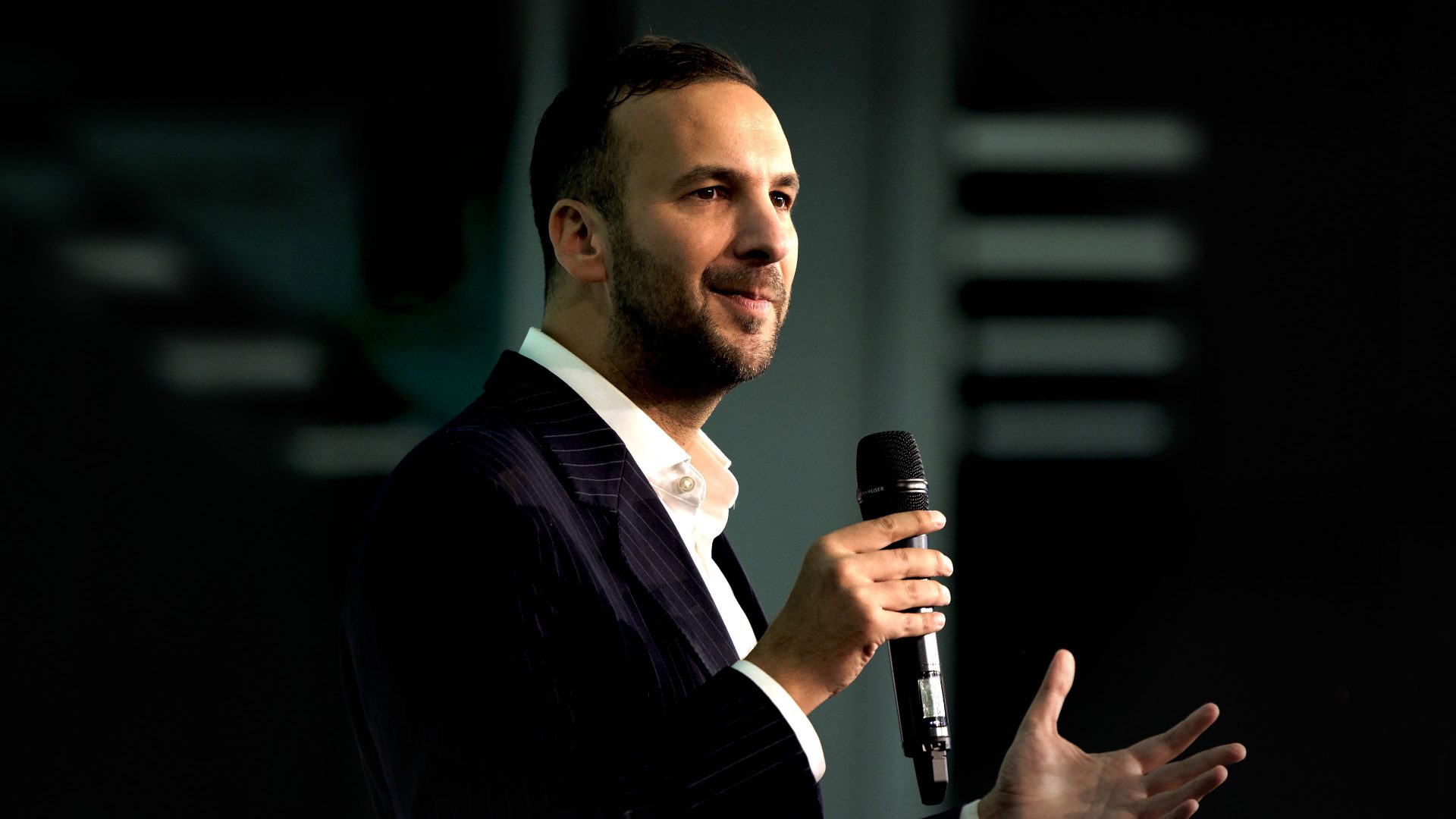Finally, the wait is over. On 23 June, the NHS announced that it would start prescribing Mounjaro to patients. The weight loss jab is the most powerful on the market, with the power to bring about a 20% drop in weight. Over 220,000 people – those with morbid obesity and a range of comorbidities due to their weight – will now be prescribed the drugs, which were previously only available through special clinics.
After decades of failed obesity policies in the UK, is this the start of a cascade of state-funded weight loss regimes, with consequences for health systems, food industries and the global economy of the future?
Scan the internet for even a few minutes and you’ll come across the magic of Wegovy or Mounjaro (often confused with the diabetes drug Ozempic which has a similar effect on appetite). It’s hard not to be captivated. For Shannon, it was a revelation. “I went from 18 stone to 8.5 stone,” she says. That loss took place over a period of 16 months.
These stories are everywhere. Appetite-suppressing injectables seem to be the life hack we’ve always dreamt of: no fasting, no extreme workouts, no sorrowful trips to Weight Watchers. Just one little needle once a week. In Britain, more than four in ten people have tried to diet. In the US, it’s nearly half. In Chile, 60% of adults. So a drug that suppresses our appetites is something humans will have dreamed of for decades: a quick fix that can make you thin. No fasting. Instead, science – drugs – can be the answer.
“Short of some crazy unfortunate side effect, this is going to change the world,” says one doctor – Chin Hur, a gastroenterologist at Columbia University.
The benefits are astonishing. Trials show people on semaglutide (the active ingredient in modern weight-loss drugs) consume 24% fewer calories per day. Many simply stop thinking about food. The drug permits you to do something many yearn for: switch your appetite off.
Until recently, obesity was largely dismissed by Big Pharma as a behavioural problem – unprofitable, unsolvable. “There was very little interest in doing this,” said Dr. Richard Di Marchi, a former executive at Novo Nordisk, the Danish pharmaceutical giant.
That changed when his company discovered that Ozempic – originally a diabetes drug – showed consistent and dramatic weight-loss effects. In 2021, the FDA approved its sibling Wegovy as a treatment for obesity. In truth, people – notably celebs – had already started using Ozempic off the books for weight loss.
The popular frenzy around weight loss drugs has been matched by the economic frenzy. Novo Nordisk has been so successful it has actually transformed the Danish economy within a few years, coming to account for 2-3% of Danish GDP and prompting the central bank to lower interest rates to manage its currency. American firm Eli Lilly has got in on the game, with its production of Zepbound, which is even more effective than Wegovy. The weight loss drugs war is well and truly underway.
The market for weight loss drugs is projected to explode from 15m users to 150m by 2035. Barclays analysts have even advised investors to dump fast-food stocks. Aeroplane stocks have risen, because seat width is projected to fall, making flights more economically efficient. United Airlines Holdings Inc. would save $80m a year if the average passenger weight falls by 10lbs.
Patents for these miracle drugs are set to expire by 2032 at the latest, and by next year it will expire in China and Canada, where Novo Nordisk – almost unbelievably – failed to pay for a patent on the key ingredient in Wegovy. Competition will lower prices. Right now the cost of the drug is about $1,000 a month in the US, and around £200 a month in Europe. But obesity is estimated to cost the global economy more than $3 trillion a year, which is roughly the size of the French economy. It looks like a super solution.
Suggested Reading


Money alone will not fix the NHS
Or does it? Not everyone is so positive. Professor Susan Jebb, chair of the UK’s Food Standards Agency, says: “We’re in a period of peak enthusiasm, as often happens with new drugs. When it settles down we’ll realise there’s a place for this, but it won’t cure all the problems of the world.”
The question is not whether these drugs are effective (they are), but what happens after patients stop taking them. And whether their benefits can really be applied at mass scale.
These drugs are so effective you don’t need to make any conscious effort. So when you stop, you haven’t learned new behaviours. Worse, your body may do anything it can to return to its higher “set” weight. Model Remi Bader, recently said that after ending a course of Ozempic (prescribed for diabetes), her binge eating got worse. In fact, she claims she “gained double the weight back”.
American writer and editor Samhita Mukhopadhyay came off the drug at the end of 2023 and has regained 60-70% of it. “I probably gained like 10 to 15 pounds within like 2 or 3 months,” she told the Vox Today Explained podcast in January. “And that was definitely not a great mental experience. I definitely came back to that feeling: I’m losing control, I’m losing control.
“It’s been an emotional roller coaster, from the way it came off to now feeling like I’m back to square one.”
Research published in May co-authored by Jebb showed almost everyone returns to their previous weight within a year of stopping. “I was surprised how fast it was,” she admits, likening them to statins for cholesterol. “You have to keep taking them – like blood pressure tablets.”
Despite scientists’ reluctance to speculate, there is a growing consensus that while GLP-1s (the scientific name for these drugs) might transform individual lives, and perhaps even public health to some extent, they won’t end the war on weight. One former GP tells me this is a common challenge in medicine – medications are great for individuals, but there are drawbacks when they are applied to whole populations.
The side effects are genuinely unpleasant – so people will not and indeed do not want to take them long term. These include nausea, gastro pain and – very rarely – pancreatitis. One in ten ‘do not respond’ to the medication at all. For those who do, they risk muscle deterioration and excess skin.
Indeed, 50-75% of people who start taking these drugs stop using them within a year. “The staggeringly high discontinuation rates of GLP-1 RA should raise alarms for clinicians, policy makers, and public health experts,” says Sadiya Khan, associate professor of medicine at Northwestern University Feinberg School of Medicine. Jebb reports that the effects “plateau” after a year. Over on the Wegovy Reddit thread, users agree: “Unfortunately the effects started to fade after around a year of use. Now I crave as much sugary snacks and fatty food as previously.”
There are also questions around patient motivation. So far, an unknown but substantial share of weight loss drug users so far have been privately bought, by people who probably don’t have a weight issue – beyond being obsessed with weight. These are not the people who really urgently need to lose weight.
Many of us imagine that it’s normal to be thin. That we would be at our ideal, God-given form a couple of stone lighter. Many of us, therefore, find it hard to grasp that actually, the body may not find it so normal. For someone who has reduced their body down a notch, after the diet or brutal regime is completed, the battle is still far from won.
It is not shedding weight that is the hardest – maintaining that weight loss is far more of a challenge. There are biological reasons for this. “We are richly endowed with genes that defend the storage of calories as fat,” says Michael Rosenbaum of Columbia University Vagelos College of Physicians and Surgeons. Doctors now understand that the “biology of weight really pushes back against efforts to change our diet,” says Dr Dan Bessessen of the University of Colorado in Denver. “And so that’s why people regain the weight… when they lose weight, the body goes, ‘this is not good’, and the people become more hungry.” For patients who want to lose the weight and keep it off, the £200 a month could be lifelong.
Suggested Reading


Dilettante: How gaming saved my mental health
Alfie Slade of the Obesity Health Alliance, a coalition of 60 health organisations that campaign to improve population health, questions whether the NHS would ever fund a lifelong drug for two thirds of the population – the proportion of UK citizens classed as overweight. That would be around 47m people. “We are never going to get to a stage where the NHS is paying for two thirds of the population – no matter how cheap these drugs get at unit price,” he says. “Especially when you consider the points of wraparound support. But even if that cost fell too, unless it was like five pounds a person, that still becomes completely unviable.”
For now, the deeper issues of food culture, inequality, and behaviour remain stubbornly in place. It is telling that countries with healthier attitudes to food have not embraced the drug. It’s also telling that it is most popular in the US and the UK.
France has refused to endorse prescribing Wegovy through its national insurance system, despite being on sale for around €300 a month. The drug safety agency has encouraged people to try all other possible methods before resorting to weight loss jabs, highlighting the risk of the drug transforming into a quick fix for aesthetic purposes. You also cannot get them covered by health systems in Germany or – ironically, perhaps – Denmark.
And then there are the patients themselves. The most common story is one of extraordinary weight loss, followed by a sudden feeling of being trapped. If the patient stops using the drug, they know the weight will return.
This pattern – cyclical obesity – wreaks havoc on self-esteem. Slade predicts a mental health crisis as patients face the realisation that they are regaining weight. That, he says, would be a nightmare for already ailing mental health services. A recent British Medical Journal editorial said: “Weight cycling is physically and psychologically burdensome for many people and can worsen health outcomes.” It suggests that the chronic and relapsing nature of obesity highlights the need for some form of lifetime care.
The food campaigner Henry Dimbleby has suggested that weight loss drugs risk becoming “the obesity version of Prozac”. Rarely does a “cure” appear for something that affects so many people – especially one so emotionally charged as body image. Drugs like Wegovy and Mounjaro may help individuals lose weight, but they won’t fix the broken food environment that has created the problem in the first place. Ultra-processed diets, aggressive fast food marketing and structural inequalities remain intact. Unless we confront those deeper drivers of obesity – what we eat, how it’s sold, and who has access to healthy choices – no injection will win the war on weight.




